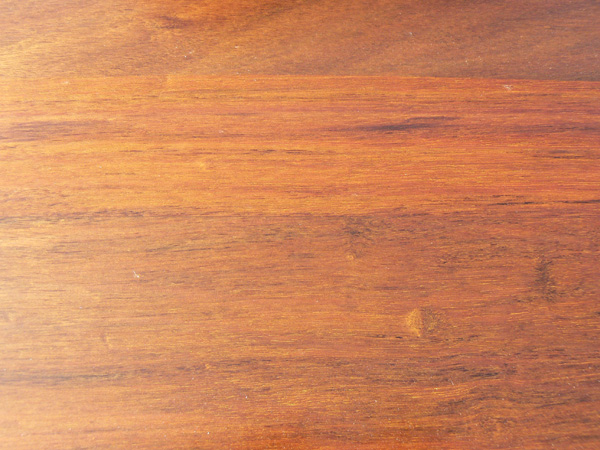The Tree: May grow to 140 to 150 ft in height with trunk diameter of 6 ft. Frequently to heights of 100 ft and diameters of 2 to 3 ft. Boles are clear to 60 ft and more, with or without buttresses.
Distribution: Ipe wood typically grows in tropical South-central America, in a wide variety of sites, in marshes and riverbanks as well as ridge tops
The wood: Heartwood olive brown to blackish, often with lighter or darker striping, often covered with a yellow powder: sharply demarcated from the whitish or yellowish sapwood. Texture fine to medium; luster low to medium; grain straight to very irregular; rather oily looking; without distinctive odor or taste.
Principal Uses: Exterior Decking, Benches, Adirondack furniture, Truck and Fishing vessel flooring, fine interior cabinetry and flooring, Archery Bows, Heavy marine dock construction.
Working Properties: Ipe lumber can be somewhat difficult to work with, especially with hand tools. Can have quite a blunting effect on cutting edges. Recommended that you use a reduced cutting angle, keep edges sharp, and always predrill for nails or screws. Have numerous extra drill bits handy. Ipe planks do not bend well, but the wood finishes and sands quite smoothly, with no splintering.
Durability: Heartwood is very resistant to attack by decay fungi and termites, but not resistant to marine borers, it has the durability and strength of teak, for a lot less money. The US Department of Agriculture and Forestry rates Ipe as "Very resistant to attack by decay, fungi and termites."
Toxicity: Ipe boards can have a fine yellow dust on the surface that may cause dermatitis in some individuals that have skin sensitivities and/or cause allergic reactions in those who breathe it in.
Other Interesting Information: Ipe is given a Class A fire rating (under the UBC-uniform building code), the same rating given to concrete & steel. Ipe is by far, the hardest and densest wood we sell.









Log In